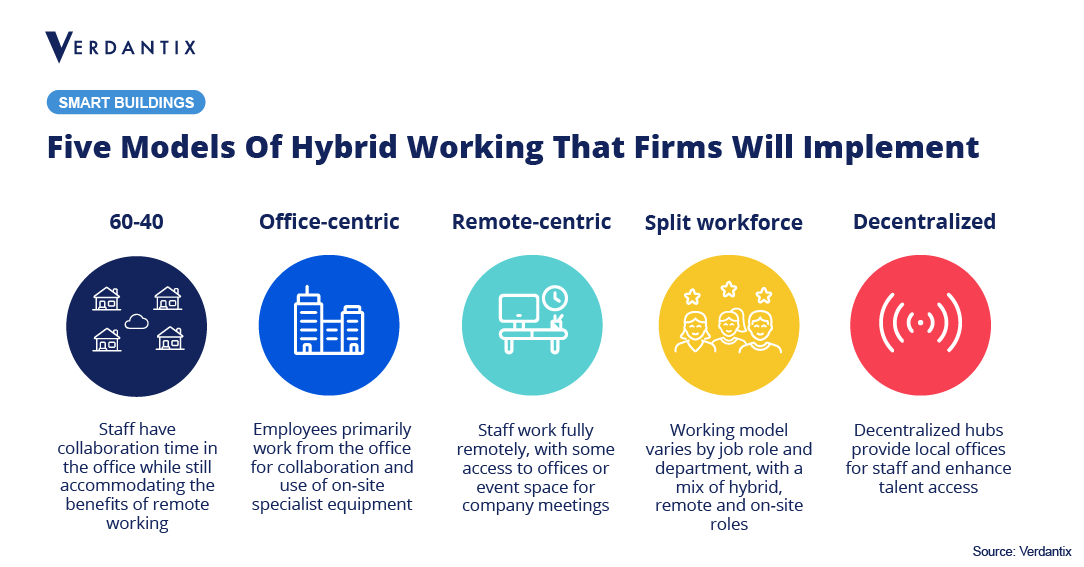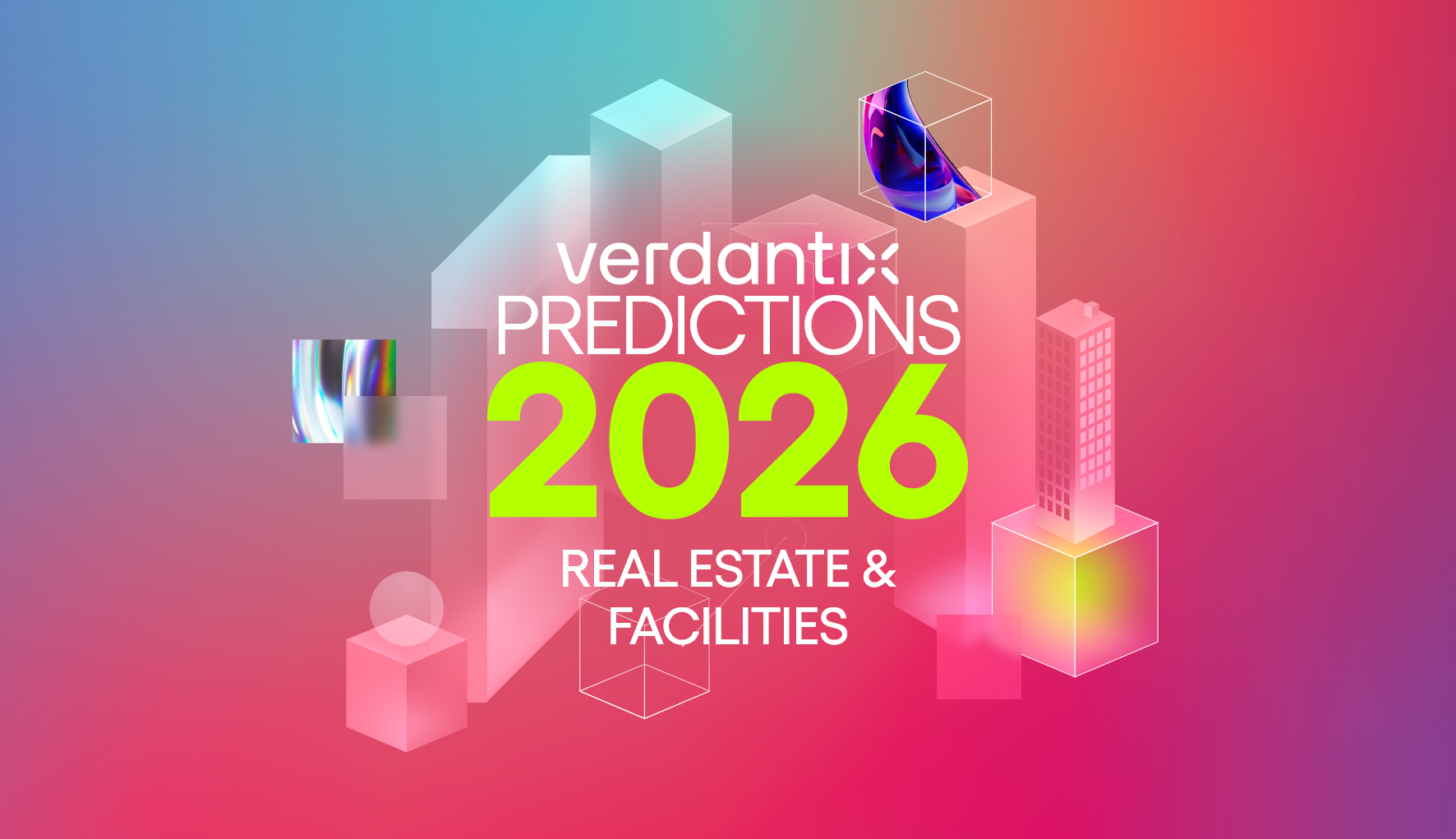Hybrid Working: Get Ready For The Complexification Of Real Estate Management

Susan Clarke
Over the past 12 months, a growing number of organizations have announced plans to accelerate their implementation of hybrid working strategies. While hybrid working is nothing new, firms are taking the concept much further today with aggressive space rationalization and the repurposing of offices as collaboration hubs. For example, HSBC announced it will leverage hybrid working to cut its real estate footprint by 40%. Similarly, Fujitsu in Japan announced it will transition to hybrid working to reduce its office space to about 50% of current levels.
When we analysed the workplace strategies from over 100 firms we found that organizations are implementing five distinct models of hybrid work. The most popular model is the 60-40 approach, with employees spending three days at the office and two at home, or vice versa. In the technology sector, firms are implementing divergent strategies, from Coinbase and Spotify implementing remote-first working models, to Netflix, which is eager for staff to work from the office with some flexibility. In the retail sector, firms are pursuing a split-workforce hybrid model, allowing only specific departments to work remotely.
Whether a firm is using hybrid working to revolutionize the workplace or accelerate existing agile working programmes, corporate executives need to be ready for the complexification of real estate management. On a practical level, facility managers will need to actively manage new mid-week peaks of staff attendance which risk straining facility resources such as desks and meeting rooms. On a strategic level, firms need to reset long-term space planning assumptions and consider a richer range of variables such as headcount, working preference and collaboration requirements. Firms will also need to make sure staff have access to the right space booking technology to coordinate valuable office visits based on space availability across distributed sites and colleagues’ schedules.
Forward-thinking real estate and facilities executives should act now to take a key role in defining these strategies and implementing change at the building level. For insights on implementing successful hybrid working programmes join our upcoming virtual event Next & Best Practices: Future of the Smart Workplace on June 17, 2021.

About The Author

Susan Clarke
Research Director





